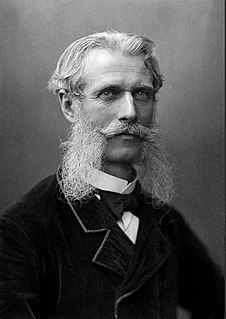A Quote by Ellen Glasgow
Conscience represents a fetich to which good people sacrifice their own happiness, bad people their neighbors'.
Quote Topics
Related Quotes
The paths by which people journey toward happiness lie in part through the world about them and in part through the experience of their souls. On the one hand, there is the happiness which comes from wealth, honor, the enjoyment of life, from health, culture, science, or art; and, on the other hand, there is the happiness which is to be found in a good conscience, in virtue, work, philanthropy, religion, devotion to great ideas and great deeds.
Although there is nothing so bad for conscience as trifling, there is nothing so good for conscience as trifles. Its certain discipline and development are related to the smallest things. Conscience, like gravitation, takes hold of atoms. Nothing is morally indifferent. Conscience must reign in manners as well as morals, in amusements as well as work. He only who is "faithful in that which is least" is dependable in all the world.
You say that you people don’t burn folk and sacrifice people anymore, but that’s what true faith would mean, y’see? Sacrificin’ your own life, one day at a time, to the flame, declarin’ the truth of it, workin’ for it, breathin’ the soul of it. That’s religion. Anything else is just . . . is just bein’ nice. And a way of keepin’ in touch with the neighbors.
To me it seems to be important to believe people to be good even if they tend to be bad, because your own joy and happiness in life is increased that way, and the pleasures of the belief outweigh the occasional disappointments. To be a cynic about people works just the other way around and makes you incapable about enjoying the good things.
When it comes to partisan politics, everyone is a hypocrite. And all they care about is whether it hurts or helps them ... Is it good or bad for the Democrats? Is it good or bad for the Republicans? Is it good or bad for Jews, or good or bad for blacks, or is it good or bad for women? Is it good or bad for men? Is it good or bad for gays? That's the way people think about issues today. There is very little discussion of enduring principles.
The central trait of sociopathy is a complete lack of conscience, which is very difficult for most people to get their heads around, because those of us who do have a conscience can't really imagine what it would be like if we didn't. Most people think that deep down everybody has a conscience, and it turns out that's just not true.
An intelligent sociopath can learn the rules about what's good and what's bad, what people see as good and bad. But they don't get that intervening sense of guilt, that pang of conscience, on account of it. So they tend to know what's wrong or right, they just don't care. That's another thing that they can use against us: that we do care. We're predictable in that.






































